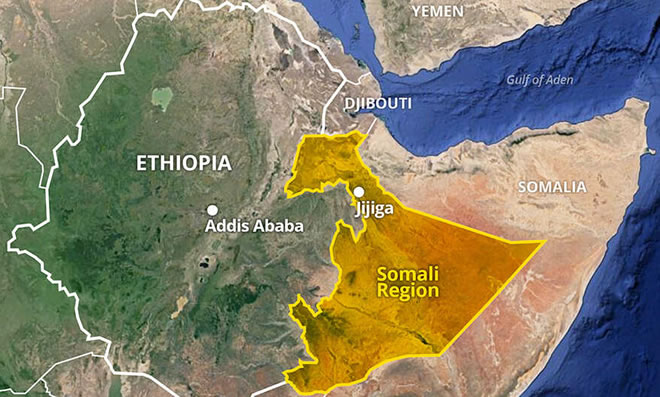by Tobias Hagmann
Friday, March 12, 2021
The author dedicates this article to the memory of Ahmed Ali Gedi ‘Borte.
Published in partnership with Ethiopia Insight.

Many years ago I conducted an interview with a leader of the Ogaden National Liberation Front (ONLF). At the time, Ethiopia’s Somali regional state was often referred to as ‘region 5’ or kilil amist.
When I asked the ONLF leader about ‘region 5’, he became irritated and said: “My home is not a number!” I thought he was just being nationalistic as ONLF members often refer to the Somali inhabited parts of Ethiopia as ‘Ogadenia’ rather than the Somali regional state, its official name. Much later, I realised that he was right. Who wants his or her home to be a number? Who wants to live in a place whose name has been externally imposed?
Admittedly, geographical names are never neutral. Most Africans had their names and identities imposed on them by European colonialists. But what if a society or a community never gets to choose its name? This has been and continues to be the case for Somalis living in today’s Somali regional state of Ethiopia.
In the case of Ethiopia’s Somali population, this conundrum goes far beyond geographical or territorial designations. Rather, it reflects a crisis both of representation and self-representation. In spite of ethnic federalism and a constitutionally guaranteed right to political self-determination, Somalis in Ethiopia never had the chance to decide on their political fate. Equally important, they rarely had the opportunity to write or narrate their own lives, history, and experience.
This enduring crisis of self-representation is maybe best formulated as a question, namely: Can the Somali region speak? Here, I am referring to the famous essay by Gayatri Chakravorty Spivak with the provocative title ‘Can the subaltern speak?’ published in 1983. Her text is a classic contribution to post-colonial theory, which criticizes the continued dominance of Western knowledge in the representation of non-Westerners.
What does Spivak mean when she asks: ‘Can the subaltern speak?’ By subaltern she refers to social groups – peasants, lower-caste individuals, women, and so on – who have continuously been subordinated. Their history and collective experience have mostly been represented by others – by colonizers, by national elites, by intellectuals.
Tobias Hagmann is an associate professor in international development at the Department of Social Sciences and Business at Roskilde University in Denmark, a research associate with the Political Geography chair at the University of Zurich, Switzerland and a fellow at the Rift Valley Institute in London/Nairobi.